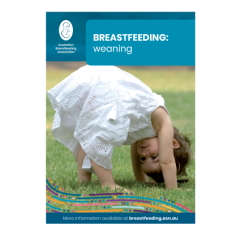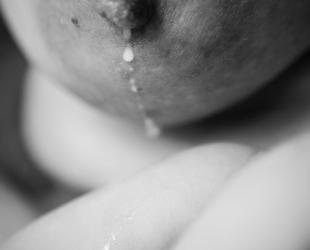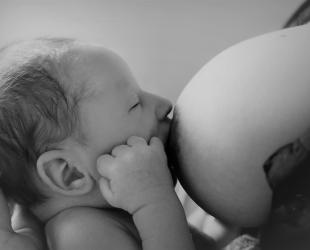Need to stop breastfeeding quickly? Here’s how to manage milk supply with care

If you need to stop breastfeeding suddenly, there are gentle ways to manage your milk supply and care for your wellbeing. Every mum’s situation is different, and support is available to help you through this time.
This article shares practical suggestions to help you stay comfortable and supported, whatever your reason for stopping.
Suppressing milk supply from birth
If you haven’t started breastfeeding, your milk supply may drop quickly, but some discomfort is normal. Here are some simple suggestions:
Wear a firm bra day and night for comfort.
Express a little milk if your breasts feel too full.
Handle your breasts gently as they can bruise easily.
Use breast pads to soak up leaking milk and change them when wet.
Cool compresses on your breasts or in your bra can help relieve pain and swelling.
Mild painkillers may help relieve pain and inflammation. Ask your doctor or pharmacist for advice.
Drink when you're thirsty. Cutting fluids won't reduce supply.
Find a comfortable sleeping position, using pillows for support.
Suppressing milk supply after weeks or months of breastfeeding
If you’ve been breastfeeding for a while, it may take longer for your milk supply to drop. The less milk you remove, the less your body will make. Gradually reducing breastfeeding or expressing is usually more comfortable and helps avoid breast inflammation.
If you need to stop breastfeeding quickly, your breasts may become very full and sore. Here’s how you can manage this:
- Express milk only when your breasts feel uncomfortable or overfull.
- At first, express at the times you would normally breastfeed your baby.
- As your breasts start to feel less full, express less milk each time and reduce how often you express.
- If your breasts become sore or very full again, express just enough to feel comfortable, then try to cut back again.
- Towards the end, you might only need to express once every few days. When you feel comfortable, you can stop expressing altogether.
The more gradually you stop breastfeeding, the easier it is for your body to adjust and the less discomfort you’re likely to experience.
Hormonal changes after sudden weaning
When you stop breastfeeding, your body goes through some natural hormonal shifts. Two key hormones, prolactin (which helps make milk) and oxytocin (which supports bonding and relaxation), begin to drop as breastfeeding ends. These changes are a normal part of the process, but they can sometimes lead to emotional ups and downs.
Some mums notice mood swings, tearfulness, or just not feeling like themselves for a little while. These feelings are common and usually settle within a few weeks, but they can be more intense with rapid weaning. If you’re finding things tough, your child health nurse or a trusted GP can offer support.
Common questions
Some medicines can stop milk production by reducing prolactin, the hormone involved in making milk. They only work in the early days when your prolactin levels are high. Once your milk supply is established, prolactin levels have dropped so these medicines aren’t effective. Taking a gradual approach and caring for your breasts will make the process easier. If you need to stop suddenly, talk to your doctor about the best options for you.
It depends on your baby’s age, how much milk you were making, and how much milk is removed either by expressing or leaking. Some mums find it takes weeks, others only days. Leaking and let-downs can happen for a while after stopping.
Use breast pads and make sure your bra isn’t too tight. Change pads regularly to keep your breasts dry.
Express a small amount if your breasts become too full. Keeping your breasts comfortable helps prevent breast inflammation.
Support during sudden weaning
Needing to stop breastfeeding quickly can be a deeply emotional experience, even aside from the feelings that come with hormonal changes. Sometimes, sudden weaning happens in the midst of circumstances that are especially difficult or heart-breaking. If you’re facing intense feelings alongside the practical steps of weaning, please know that compassionate help is available. Reaching out to a support service or someone you trust can make a difference.
- A breastfeeding counsellor on the National Breastfeeding Helpline (for support with weaning)
- Red Nose Grief and Loss Support
- Stillbirth Foundation Australia
- Griefline
© Australian Breastfeeding Association December 2025
Read more about weaning
Evidence-led info and practical tips from our Breastfeeding Information Series
Breastfeeding: weaning



